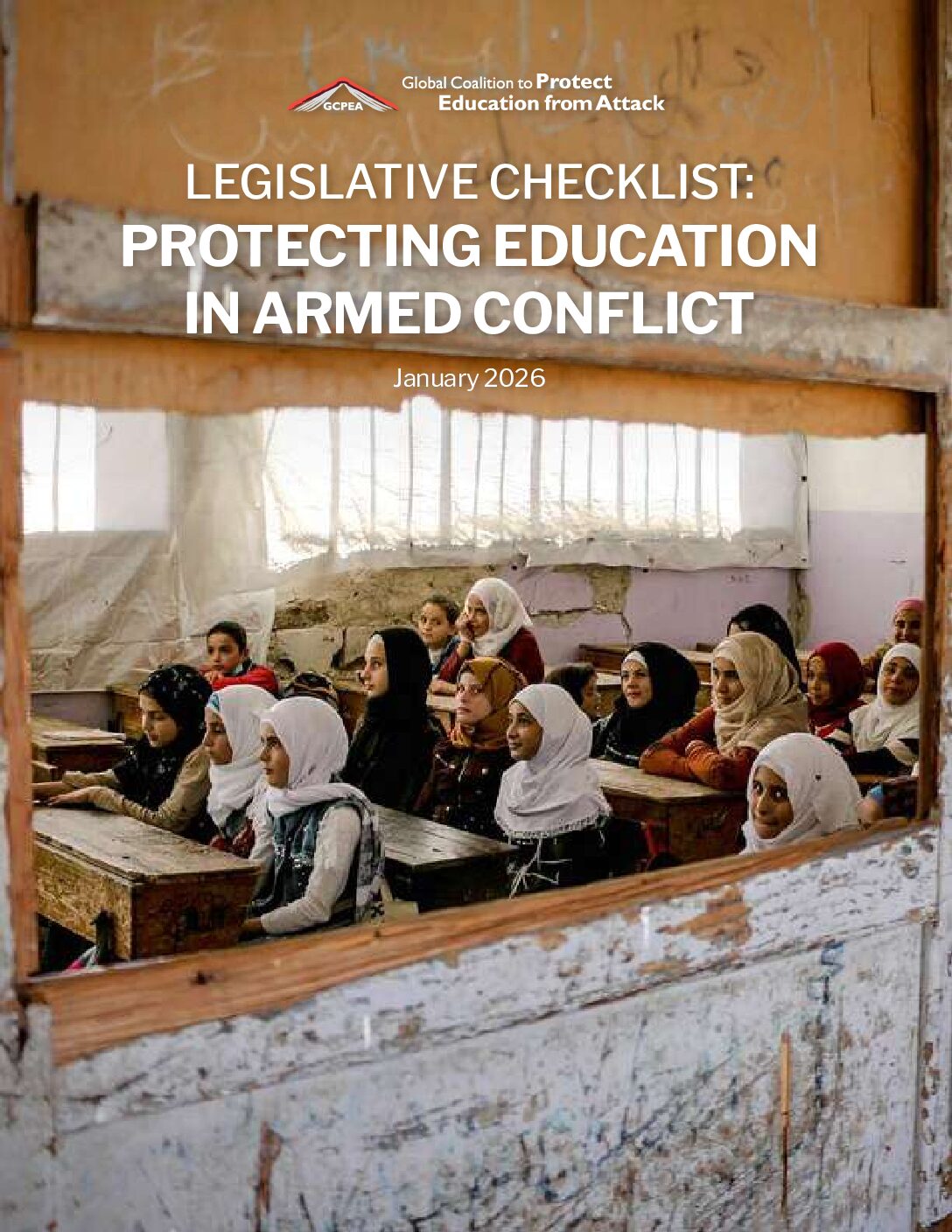GCPEA News
ISIS Takeover In Iraq: Mosul University Students, Faculty Uncertain About The Future Of Higher Education
International Business Times, December 2, 2014
By Julia Glum
Almost six months have passed since the Islamic State group shut down one of the Middle East’s biggest research and education centers, and there’s still no sign of relief in Iraq’s second-largest city. The University of Mosul, in northern Iraq, was scheduled to reopen last week, but its inactive Facebook page and website indicate that classes remain canceled. With segregated exams, shuttered departments and fleeing professors, the university’s continued closure raises concerns about the future of higher education in an ISIS-dominated Iraq.
With about 4,200 faculty members and 30,000 students, the University of Mosul was Iraq’s second-largest academic institution (the largest is the University of Baghdad). Now, thousands of its students have left the area for nearby Kurdistan. “Education life is on hold in Mosul, and we’ll see when it restarts,” said David Patel, a junior fellow at the Crown Center for Middle East Studies at Brandeis University, near Boston.
The ISIS university takeover is particularly frustrating as Iraq was just piecing its education system back together after the Iraq War (2003-2011), said Sarah Willcox, the director of the Institute of International Education’s Scholar Rescue Fund. Scholars were returning to their positions after having left to avoid conflict, and government funding for colleges was increasing. “Now, whole classes of students aren’t able to take exams, they can’t enroll, they can’t move from university to the next [stage of their life],” Willcox said.
Professors have been affected too. ISIS has dismissed hundreds of researchers — some for being Shia Muslim, others for being female. Especially at risk were scholars who had connections to the United States, Patel said. ISIS targeted them immediately after gaining control of Mosul this past summer. “The first thing they did was go to the personnel office and get all the files… to figure out which of them had studied in America, had contacts in America… to be disposed of,” he said. “[Professors] fled Mosul because their names would end up on death lists.”
Most of the students and faculty who escaped Mosul went to Kurdistan, where “it’s a whole different story,” said Lori Mason, director of IREX’s Iraq University Linkage Program. The Ministry of Higher Education and Scientific Research is doing what it can to help displaced students, including arranging for them to attend night classes at the University of Duhok. The ministry also plans to create substitute departments and colleges, according to a statement on its website.
But schools in Kurdistan simply don’t have enough resources to accommodate the refugees. Mason said about 15,000 people have applied for study there, and only 3,000 were accepted. Because of this, the ministry has declared this a nonfailure year. “The assumption is that things will have settled by next year, and they can pick up where they left off,” Mason said. “This year won’t count against them.”
The brutal militants known as the Islamic State, ISIS and ISIL, among other names, have been labeled a terrorist group by countries like the United States and European Union. They invaded Mosul this summer and by June more than 2,000 ISIS members dominated the city, commandeering military vehicles and burning soldiers. Iraqi security forces did little to hold them back because of short staffing, a low weapon supply and disagreements among political leaders.
ISIS commanders have especially discriminated against female students, yelling at them to cover their faces and doling out punishments for talking with men. Students who stayed to take their November final exams were also segregated by gender, Al-Fanar Media reported.”I feel like my future is ruined,” nursing student Nour al-Nuaimi told Bloomberg.
Middle Eastern higher education institutions have long been vulnerable to regime changes. During its Cultural Revolution in the 1980s, Iran shut down its universities to avoid violence as they underwent “Islamization” to purge professors and force new restrictions on female students. In Iraq, about 500 academics died during the fall of Saddam Hussein in 2003, according to the Global Coalition to Protect Education from Attack.
If ISIS does retain control of Mosul, students can expect a curriculum shift. In October, ISIS closed departments including archeology, law and political science. They also canceled classes about democracy, non-Islamic culture, human rights, drama, geography and civics. Discussing historical events that don’t fit with ISIS’ views is forbidden, and Iraqis aren’t likely to rebel for fear of the system being shut down entirely.
“For the university to continue functioning in some respect, academic freedom is completely destroyed,” Willcox said. “Do you toe the line of the new regime or do you push against it? I think pushing against it means terrible consequences.”
Under ISIS, the University of Mosul would require students to complete years of weapon training and religious studies before college, Al-Farnar Media reported. Once admitted, a committee will choose students’ fields for them.
It’s hard to predict what will happen if the Iraqi government regains control of its higher education system, Patel said. But he said the ongoing discussion around the future of the University of Mosul demonstrates students and faculty’s dedication to school. “Suicide bombings are occurring and people are still studying,” Patel said. “People are trying to just make the best of their own lives despite everything else happening in the country.”



